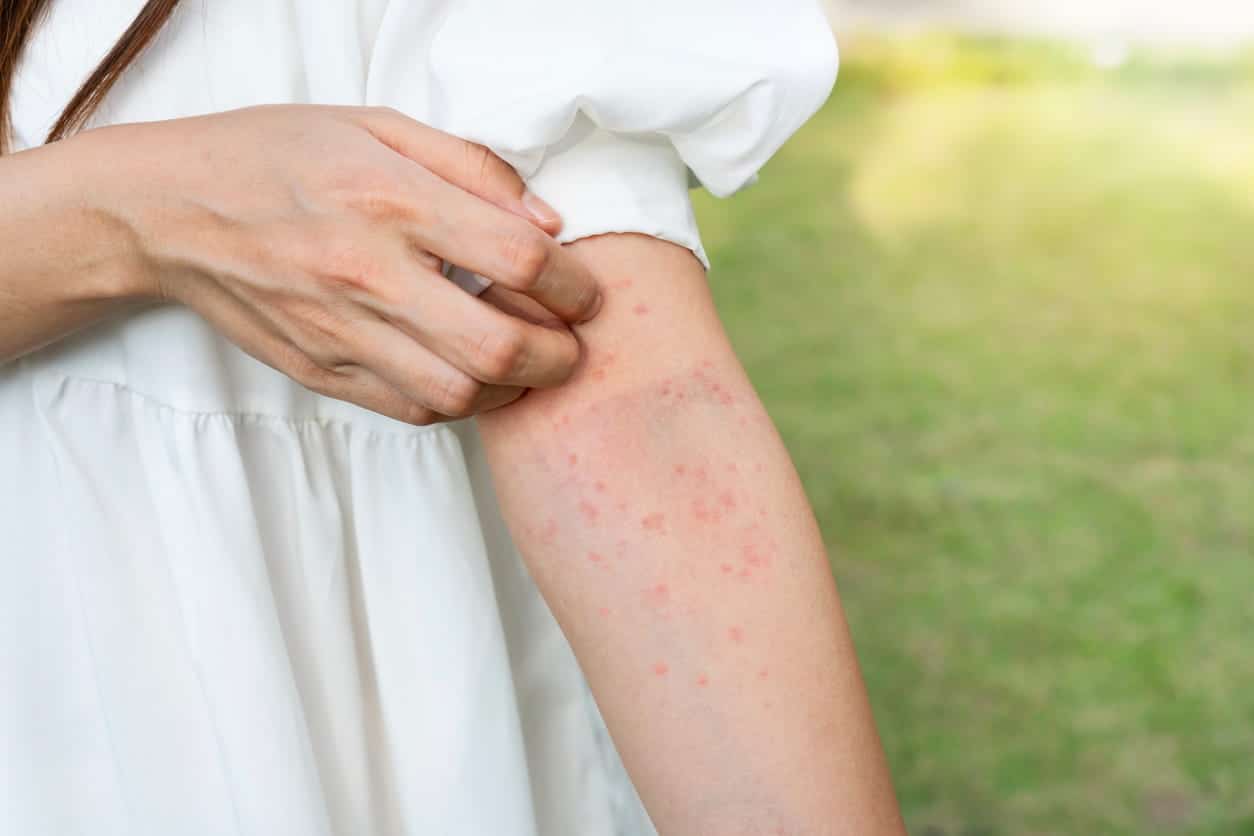
Allergic Attacks from Bugs: The Basics
Allergic reactions to bug bites or bee stings are quite common and cause pain or discomfort for those affected. These reactions occur when the immune system overreacts to proteins in the bug’s saliva or venom. Here are some common symptoms and treatments for these types of reactions.
Symptoms of an Allergic Reaction
Symptoms of an allergic reaction to a bug bite or sting include redness, swelling, itching, and pain at the site of the bite. More severe reactions can also cause hives and difficulty breathing. It’s important to seek medical attention immediately if you experience any of these more severe symptoms.
Redness and Swelling
Most insect bites cause a red bump to form on your skin. If the area of the bite becomes red and swollen, this is a sign of an infection. In severe cases, bug bites can cause hives too. Reactions that aren’t severe usually clear up within a few hours. However, you can reduce swelling and redness by washing the area with soap and water and then placing a cold compress over the affected area.
Itching
When a bug bites, it releases saliva that can cause the skin to be itchy. If washing the site with soap and water and placing a cold compress doesn’t help, you can use anti-itch or antihistamine cream to relieve the itching.
Treating an Allergic Reaction

If you suspect you have developed an allergic reaction to a bug bite, it’s important to get help. To treat less severe reactions, antihistamines can be taken by mouth to reduce swelling. There are over-the-counter allergy medications you can take such as Allegra or Children’s Allegra, or a pain reliever as needed. Of course, be sure to consult with your physician, and for more serious symptoms, such as hives or difficulty breathing, seek urgent care.
Keep Pests Away with Hulett Environmental Services
Dealing with reactions to an insect bite is never fun. At Hulett Environmental Services, we provide a variety of pest control treatments to keep your home or business pest-free. Help protect yourself and your loved ones from risks from pests such as bug bites and contact our team of pest professionals at Hulett today. Give us a call or contact us online to schedule your free inspection today!



